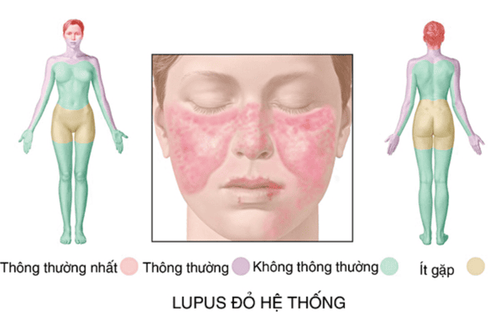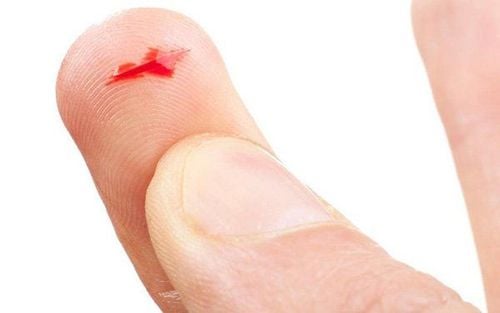Headaches can be a common symptom of disorders, dehydration, or chronic illnesses. Similarly, chronic fatigue may arise from conditions like fibromyalgia, depression, or sleep disturbances. In many cases, these two conditions often occur together.
Headaches and fatigue can be typical symptoms of certain medical conditions. Although these issues are not always considered severe, some noticeable symptoms may require lifestyle changes or even medical intervention.
Before identifying the causes of common issues like headaches and chronic fatigue, you should carefully review your daily lifestyle, including eating habits, sleep quality, or recent medication usage.
Below are 16 common reasons that cause headaches and fatigue:
1. Migraines
In general, migraines are neurological disorders that often cause severe headaches. Most common migraine symptoms begin 1–2 days before the actual headache appears. This phase, known as the “prodrome,” serves as a warning. During this stage, some patients may experience signs such as depression, fatigue, and low energy.
When the headache manifests, it is referred to as the “attack phase.” Symptoms during this phase include:
- Headache accompanied by dizziness;
- Nausea or vomiting;
- Sensitivity to sound and light.
After the migraine subsides, patients may feel tired or even detached from their surroundings. If these headaches frequently disrupt your daily life, you should consult a doctor promptly for treatment and prevention.

2. Medication-Induced Headaches
Certain medications may cause side effects like headaches and fatigue. People who frequently use antihypertensive drugs or diuretics may experience headaches and fatigue due to dehydration.
Additionally, some medications can disrupt sleep quality, leading to prolonged sleep deprivation, which is a major cause of headaches.
3. Dehydration
Dehydration, caused by insufficient fluid intake, can result in uncomfortable headaches. Other signs of dehydration include drowsiness and chronic fatigue.
Headaches caused by dehydration typically resolve within hours after drinking water. To prevent and alleviate headaches and fatigue, you should drink 8–10 glasses of water daily, especially during hot days or after sweat-inducing activities.
4. Excessive Caffeine Consumption
Caffeine is widely used to enhance alertness and reduce fatigue. However, as a stimulant of the central nervous system, excessive caffeine can significantly affect nighttime sleep. Insufficient sleep often results in headaches and fatigue.
Frequent consumption of caffeine can also cause dependency. When you stop consuming it, you may experience “withdrawal symptoms,” including headaches and fatigue.

5. Fibromyalgia
Fibromyalgia is a chronic disorder characterized by fatigue and widespread pain, often occurring at tender points or trigger points throughout the body.
In addition to fatigue, fibromyalgia patients often suffer from headaches. If symptoms persist or worsen, consult a doctor for an accurate diagnosis and treatment plan.
6. Chronic Fatigue Syndrome (CFS)
CFS causes severe fatigue lasting at least four months, even after rest
Symptoms of CFS include:
- Insomnia;
- Frequent difficulty concentrating;
- Severe headaches;
- Muscle and joint pain.
7. Sleep Disorders
Sleep disorders, such as restless leg syndrome, insomnia, sleep apnea, and nighttime teeth grinding, can significantly disrupt sleep. These conditions are key factors contributing to headaches and fatigue. Sleep disorders are also closely linked to migraines.
Chronic sleep deprivation increases the hormone cortisol, which causes stress and negatively affects mood. Elevated cortisol levels can lead to acne, weight gain, headaches, irritability, and fatigue.

8. Concussions
A concussion refers to temporary brain injury caused by a blow to the head. If you sustain head trauma, seek immediate medical care.
In addition to headaches and fatigue, concussions may cause:
- Memory problems;
- Behavioral changes;
- Confusion;
- Unconsciousness;
- Persistent vomiting;
- Blurred vision.
9. Hangovers
Hangovers often result from excessive alcohol consumption, which dehydrates the body, causing vasodilation and headaches.
Alcohol can also disrupt sleep quality. While it may induce drowsiness initially, you often wake up feeling tired and lethargic the next morning.
10. Colds and Influenza
Both the common cold and seasonal influenza caused by viruses share symptoms such as headaches and fatigue. Other common signs include fever, cough, runny nose, or sore throat.
11. Menstruation
Some women experience hormonal fluctuations before and during menstruation, which can trigger headaches and fatigue.
Common PMS (premenstrual syndrome) symptoms include:
- Breast tenderness;
- Headaches;
- Mood swings;
- Fatigue;
- Sleep disturbances;
- Increased appetite.

12. Anemia
Low red blood cell counts result in anemia, which deprives tissues of necessary oxygen to perform their functions.
Anemia, particularly iron-deficiency anemia, often causes symptoms such as:
- Weakness and fatigue;
- Headaches;
- Shortness of breath;
- Dizziness;
- Brittle nails;
- Pale skin.
13. Digital Eye Strain
Prolonged use of devices like smartphones or computers can overstrain your eyes, leading to digital eye strain. This condition causes headaches, difficulty sleeping, and increased fatigue.
To reduce eye strain, follow the 20-20-20 rule: every 20 minutes, take a 20-second break, and focus on something at least 20 feet away.
14. Pregnancy
Pregnant women often experience headaches and fatigue due to increased progesterone levels and changes in blood volume and hormone levels.
15. Systemic Lupus Erythematosus (SLE)
SLE is a chronic autoimmune disease where the immune system mistakenly attacks the body’s tissues.
Common symptoms include:
- Headaches with severe fatigue;
- Swollen and painful joints;
- Butterfly-shaped facial rashes over the nose and cheeks;
- Hair loss;
- Raynaud’s phenomenon (fingers turning blue or white in cold conditions).
If you experience these symptoms, seek medical attention for diagnosis and treatment.

16. Depression
Depression is increasingly common, particularly among young individuals. This serious condition can cause physical exhaustion and negatively affect mental health.
Depression can also disrupt sleep, leading to headaches and fatigue. Other significant symptoms include:
- Social withdrawal;
- Persistent sadness;
- Body aches;
- Feelings of helplessness or worthlessness;
- Changes in appetite.
Early treatment of depression improves both mental and physical health, enhancing quality of life and reducing symptoms like headaches and fatigue.
To arrange an appointment, please call HOTLINE or make your reservation directly HERE. You may also download the MyVinmec app to schedule appointments faster and manage your reservations more conveniently.
Reference source: healthline.com













